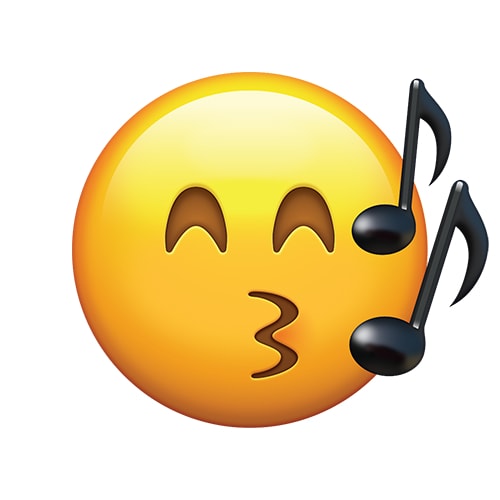Everything About Whistling

April 23, 2020
Whistling is a true mystery. I consider myself a sufficient whistler; the scale is the basic of the basics. I can imitate any song, and I am currently working on my vibrato. As much as I like to look down on my family members and my friends who can’t whistle to save their lives, I’ve always wondered why they are sadly unable to. It’s really strange; my parents can’t even make a single sound while I’m whistling a master sonata while writing this article. So that is why I present to you every single piece of information I can find about whistling.
Studies show that whistling might even make you believe that you are happier than you actually were before, creating contentment. Professional whistler Robert Stemmons stated that whistling improves your mood and relieves your stress. Other benefits include delayed aging signs. John Wagstaff from the University of Illinois says that whistling is an effective way to release emotions. He also believes that whistling is beneficial for your heart and for your lungs, promoting healthy blood circulation and a normal heart rate. It requires deep diaphragmatic breathing, which brings more oxygen into the body!
Whistling is, according to Wikipedia, achieved by creating a small opening with one’s lips, usually by applying moisture (licking one’s lips or placing water upon them) and then blowing or sucking air through the space. I looked up the method to whistling on the internet, and I tried it out for myself. (I repeat: I am a seasoned whistler.) The method on the web doesn’t really work for me. So that is why I have been experimenting with whistling in front of my laptop for the past hour; to instruct readers on how to whistle.
The number one mistake that I see people make is the wrong shape of the mouth. If you don’t have the right shape, the sound will never sound clean. I’ve seen many people purse their lips, as if they were about to kiss the air. That is not it. The key is to move your mouth the farthest away from your face as possible as you’re making the gap between your lips as small and as round as possible. The next step is to put your tongue behind your two bottom front teeth, but don’t press hard. You shouldn’t put a lot of force while you’re blowing air, either. Whistling is a very delicate process, and every note needs to be smooth and light. Your tongue should be curled. It probably won’t work the first time try you try this method, but you need to try again and again to get the sound. If you manage to make your first sound, (congratulations!) you can now learn to change pitches. The range of where the tongue should go is the very tip of the bottom front teeth to your gum beneath the teeth. The higher you go, the higher will be the pitch and vice versa.
Maybe this article has prompted you to whistle. Maybe you’re whistling right now. Maybe you’re even a master whistler. If that’s the case, are you aware that there are actually several whistling competitions? One of the most known is called the IWC, or the International Whistlers Convention. It has been going on for over 40 years, from the year 1974. I encourage you to watch some of the competitors’ videos; they are extremely talented.
I don’t believe that whistling is based on genetics. If it was, then why would I be able to whistle when my parents can’t? In fact, my whistling isn’t even ‘natural’; I learned how to. I vaguely remember my friends at school whistling, and I tried to copy the sound. At first, it sounded airy and wrong, but I later got the hang of it. Anyone can learn how to whistle, and once you do, it will come to you like it’s been a part of you all along.
The problem is, not everybody likes to hear the sound of whistling. Many times, I have been asked to stop my whistling because it is considered irksome to some people. Of course, I understand and stop right away, but what is interesting is that I almost never realize that I’m even whistling. It’s a habit, I guess. It’s probably less annoying than my singing voice, though. But did you know that there is a reason people are better at whistling than singing (in general)?
Human beings are the only kind of ape that can sing, and the pitch of our voice comes from the larynx (AKA the voice box). On the other hand, we use our lips for whistling rather than the larynx. According to research done from the University of Toronto, in a lab experiment, it was concluded that whistling had a higher accuracy than singing. It’s interesting because we are always using our voices in our daily lives and always changing the pitch. Studies show that control over the lips evolved much earlier for us than the larynx, so that might explain it. Whistles are very simple sounds and carry less information than the voice, but they can carry much further.
I think it’s pretty miraculous that a function of the human body is to make sounds, and even change pitches as you would with an instrument like a flute or a cello. I think that it’s a gift to make a beautiful tune without much effort and to brighten up your day. So get on with your whistling during the quarantine!
















































































































































